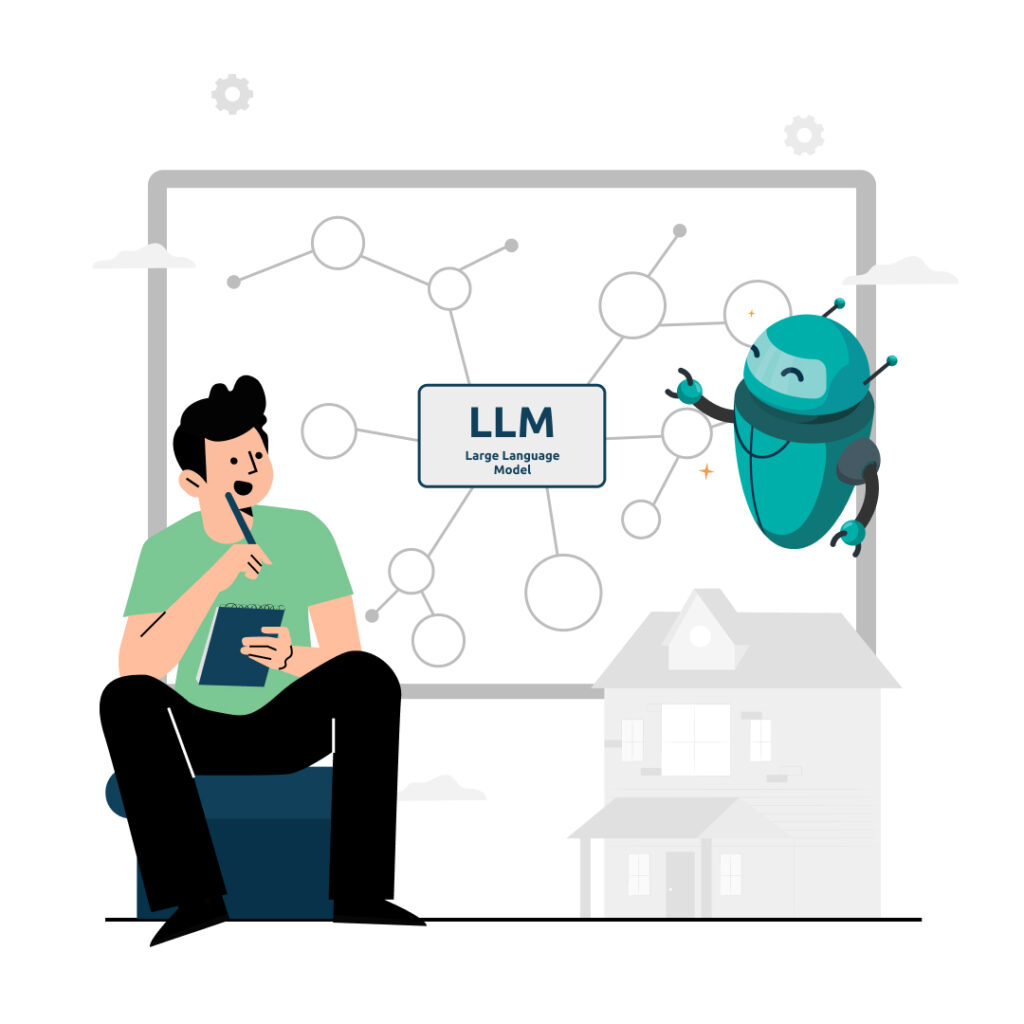Finding the Right Software Company for Your Custom CRM Software Needs
Choosing the right software company for your custom CRM software needs can be a daunting task. In today’s highly competitive business landscape, having a tailored CRM solution is essential for effectively managing customer relationships and driving growth. However, with so many options available, it’s crucial to make an informed decision to ensure your investment yields the desired results.
Understanding the Importance of Choosing the Right Software Company
The software company you select will play a pivotal role in the success of your CRM project. They will be responsible for translating your business requirements into a functional and user-friendly software solution. Partnering with the wrong software company can lead to delays, cost overruns, and ultimately, a solution that fails to meet your expectations.
When choosing a software company, it’s essential to consider their expertise, experience, and track record in developing CRM solutions. Look for a company that has a proven track record of delivering high-quality software on time and within budget. Additionally, consider their approach to communication, project management, and customer support to ensure a smooth and successful collaboration.
Overview of Custom CRM Software and Its Significance
Custom CRM software is a tailored solution designed to meet the unique needs of your business. Unlike off-the-shelf CRM solutions, which offer a one-size-fits-all approach, custom CRM software can be customized to align with your specific business processes, workflows, and requirements.
The significance of custom CRM software lies in its ability to provide a competitive advantage by enabling businesses to better understand, engage, and serve their customers. With a custom CRM solution, you can centralize customer data, automate routine tasks, and personalize interactions to deliver a superior customer experience.
Custom CRM software also offers scalability, allowing businesses to adapt and grow without outgrowing their CRM system. Whether you’re a small startup or a large enterprise, custom CRM software can be tailored to support your current needs and future growth aspirations.
At the last, choosing the right software company for your custom CRM software needs is a critical decision that requires careful consideration. By understanding the importance of this decision and having a clear overview of custom CRM software and its significance, you can make an informed choice that sets your business up for success.
Defining Your CRM Software Requirements: A Comprehensive Guide
Choosing the right CRM (Customer Relationship Management) software for your business is a crucial decision that can significantly impact your operations and customer relationships. To ensure you select the best-fit solution, it’s essential to define your CRM software requirements accurately. In this guide, we’ll walk you through the process of identifying your specific business needs, understanding the scope and scale of your CRM solution, and analyzing integration requirements with existing systems.
Identifying Specific Business Needs and Objectives
Before diving into the world of CRM software, take a step back and assess your business needs and objectives. Start by identifying your key pain points and challenges in managing customer relationships. Are you struggling with lead management, customer communication, or sales tracking? By pinpointing your specific requirements, you can narrow down your search and focus on solutions that address your most pressing needs.
Next, consider your long-term business goals and objectives. What do you hope to achieve with a CRM solution? Whether it’s improving customer satisfaction, increasing sales revenue, or streamlining internal processes, having clear objectives will guide your selection process and ensure the chosen CRM software aligns with your overarching business strategy.
Understanding the Scope and Scale of Your CRM Solution
Once you’ve identified your business needs and objectives, it’s time to consider the scope and scale of your CRM solution. Determine the size of your customer database and the volume of interactions you expect to manage. Are you a small business with a few hundred contacts, or a large enterprise with thousands of customers spread across multiple channels?
Additionally, consider the functionality you require from your CRM software. Do you need basic contact management and email marketing capabilities, or more advanced features such as sales automation, reporting, and analytics? Understanding the scope of your CRM solution will help you narrow down your options and focus on solutions that meet your specific requirements.
Analyzing Integration Requirements with Existing Systems
In today’s interconnected business landscape, integration is key. Before selecting a CRM software, it’s crucial to analyze its compatibility and integration capabilities with your existing systems and software applications. Evaluate whether the CRM solution seamlessly integrates with your email marketing platform, accounting software, e-commerce platform, and any other tools you use in your daily operations.
Consider the ease of integration and the availability of APIs (Application Programming Interfaces) for custom integrations. A CRM solution that integrates smoothly with your existing systems will not only streamline your workflows but also provide a more holistic view of your customer data and interactions.
Defining your CRM software requirements is a critical step in selecting the right solution for your business. By identifying your specific business needs and objectives, understanding the scope and scale of your CRM solution, and analyzing integration requirements with existing systems, you can make an informed decision that drives business growth and enhances customer relationships.
Evaluating Software Company Expertise: Key Considerations for Choosing the Right Partner
When embarking on the journey of selecting a software company for your custom CRM software needs, one of the most critical factors to consider is their expertise. Choosing a partner with the right skills and experience can make all the difference in the success of your CRM project. In this guide, we’ll explore the key considerations for evaluating software company expertise, including assessing industry experience and specializations, reviewing portfolio and case studies of previous CRM projects, and verifying client testimonials and references.
Assessing Industry Experience and Specializations
One of the first steps in evaluating software company expertise is to assess their industry experience and specializations. Look for a company that has a proven track record of working with businesses in your industry or vertical. Industry-specific knowledge and expertise can be invaluable in understanding your unique business requirements and delivering a tailored CRM solution that meets your needs.
Additionally, consider the depth and breadth of the software company’s experience. Do they specialize in CRM software development, or do they offer a wide range of services? While a diversified portfolio can be beneficial, a software company that specializes in CRM development is likely to have a deeper understanding of the intricacies and complexities of CRM systems.
Reviewing Portfolio and Case Studies of Previous CRM Projects
Another essential aspect of evaluating software company expertise is to review their portfolio and case studies of previous CRM projects. Look for examples of projects similar in size, scope, and complexity to yours. Pay attention to the quality of their work, user interface design, and functionality.
Case studies can provide valuable insights into the software company’s approach to CRM software development, project management methodologies, and problem-solving skills. Look for evidence of successful project delivery, on-time delivery, and client satisfaction.
Verifying Client Testimonials and References
Finally, don’t forget to verify client testimonials and references when evaluating software company expertise. Reach out to past clients and ask about their experience working with the software company. Were they satisfied with the quality of the software delivered? Did the software company communicate effectively and respond to their needs in a timely manner?
Client testimonials can provide valuable firsthand insights into the software company’s professionalism, reliability, and customer service. Don’t hesitate to ask for references and speak directly with past clients to gain a deeper understanding of what it’s like to partner with the software company.
Evaluating software company expertise is a critical step in choosing the right partner for your custom CRM software needs. By assessing industry experience and specializations, reviewing portfolio and case studies of previous CRM projects, and verifying client testimonials and references, you can make an informed decision that sets your CRM project up for success.
Understanding Development Processes and Methodologies: A Guide for Choosing the Right CRM Software Company
When it comes to developing custom CRM software, understanding the development processes and methodologies employed by your chosen software company is crucial. In this guide, we’ll explore the key considerations for understanding development processes and methodologies, including exploring Agile vs. Waterfall development approaches, clarifying communication channels and project management tools, and assessing flexibility and adaptability to changes.
Exploring Agile vs. Waterfall Development Approaches
Two primary methodologies govern software development: Agile and Waterfall. Each approach has its advantages and drawbacks, and understanding the differences between them is essential for selecting the right CRM software company.
Agile methodology is iterative and focuses on collaboration, flexibility, and delivering working software in short increments. It allows for continuous feedback and adjustments throughout the development process, making it ideal for projects with evolving requirements or uncertain outcomes.
On the other hand, Waterfall methodology follows a sequential, linear approach, where each phase of the project must be completed before moving on to the next. While Waterfall provides a structured framework and clear project milestones, it may not be as adaptable to changes or feedback during the development process.
Clarifying Communication Channels and Project Management Tools
Effective communication is paramount in any software development project. When evaluating a software company, clarify the communication channels they use and the project management tools they employ.
Look for a software company that prioritizes transparent and open communication channels, such as regular status meetings, project updates, and feedback sessions. Additionally, inquire about the project management tools they utilize, such as Trello, Jira, or Asana, to ensure efficient collaboration and tracking of project progress.
Assessing Flexibility and Adaptability to Changes
In today’s dynamic business environment, flexibility and adaptability are key attributes of a successful CRM software project. Assess how the software company handles changes in requirements, scope adjustments, or unforeseen challenges during the development process.
Look for a software company that embraces change and has mechanisms in place to accommodate evolving needs without compromising project timelines or quality. Whether it’s through agile methodologies, flexible contracts, or proactive communication, prioritize partners who demonstrate a willingness to adapt to changing circumstances.
Understanding development processes and methodologies is essential for selecting the right CRM software company. By exploring Agile vs. Waterfall development approaches, clarifying communication channels and project management tools, and assessing flexibility and adaptability to changes, you can make an informed decision that sets your CRM project up for success.
Ensuring Compliance and Security Measures in CRM Software Development
Ensuring compliance and implementing robust security measures are paramount when you want to develop custom CRM software. In this comprehensive guide, we’ll delve into the key considerations for ensuring compliance and security measures, including understanding regulatory requirements, evaluating data protection and privacy policies, and assessing measures for data security and confidentiality.
Understanding Regulatory Requirements in CRM Software Development
Compliance with regulatory requirements is essential for any CRM software project. Depending on your industry and geographic location, there may be specific regulations and standards that govern the handling of customer data. It’s crucial to understand these requirements upfront to ensure your CRM software meets all necessary compliance standards.
Common regulations that may impact CRM software development include the General Data Protection Regulation (GDPR) in Europe, the Health Insurance Portability and Accountability Act (HIPAA) in the healthcare industry, and the Payment Card Industry Data Security Standard (PCI DSS) for businesses handling credit card information. By understanding these regulations, you can design and implement a CRM solution that adheres to legal requirements and protects customer data.
Evaluating Data Protection and Privacy Policies
In addition to regulatory compliance, evaluating the data protection and privacy policies of your chosen software company is essential. Look for a partner that prioritizes data security and has robust policies and procedures in place to protect sensitive information.
Review the software company’s privacy policy to ensure they adhere to best practices for data collection, storage, and usage. Additionally, inquire about their data encryption methods, access controls, and regular security audits to safeguard against unauthorized access and data breaches.
Assessing Measures for Data Security and Confidentiality
When entrusting a software company with your CRM software development, it’s crucial to assess the measures they have in place for data security and confidentiality. Inquire about their internal security protocols, employee training programs, and incident response procedures to mitigate risks and ensure the safety of your data.
Look for partners who follow industry-standard security practices, such as ISO 27001 certification, and prioritize the protection of customer data at every stage of the development process. By partnering with a software company that prioritizes data security and confidentiality, you can mitigate risks and build trust with your customers.
In conclusion, ensuring compliance and implementing robust security measures are critical aspects of CRM software development. By understanding regulatory requirements, evaluating data protection and privacy policies, and assessing measures for data security and confidentiality, you can mitigate risks and build a secure CRM solution that protects customer data and meets compliance standards.
Examining Technical Expertise and Capabilities in CRM Software Development
Selecting a software company for your custom CRM software needs, assessing their technical expertise and capabilities is crucial. In this comprehensive guide, we’ll delve into the key aspects of examining technical expertise and capabilities, including reviewing technology stack and compatibility, assessing scalability and performance optimization strategies, and analyzing support and maintenance services offered.
Reviewing Technology Stack and Compatibility
The technology stack used by a software company plays a significant role in the development and performance of your CRM software. It’s essential to review the technology stack they utilize and ensure it aligns with your business requirements and preferences.
Evaluate whether the software company employs modern and widely adopted technologies for CRM software development, such as programming languages, frameworks, and databases. Additionally, consider compatibility with existing systems and infrastructure to ensure seamless integration and interoperability.
Assessing Scalability and Performance Optimization Strategies
Scalability is another critical aspect to consider when examining technical expertise and capabilities. As your business grows and evolves, your CRM software must be able to scale to accommodate increasing data volumes, user traffic, and functionality requirements.
Assess the software company’s approach to scalability and performance optimization. Inquire about their strategies for horizontal and vertical scaling, caching mechanisms, load balancing, and database optimization. A robust and scalable CRM solution will ensure smooth operations and performance even as your business expands.
Analyzing Support and Maintenance Services Offered
Support and maintenance are integral components of the software development lifecycle. When selecting a software company, it’s essential to analyze the support and maintenance services they offer to ensure the long-term success of your CRM software.
Inquire about the software company’s support channels, response times, and service level agreements (SLAs). Additionally, assess their approach to bug fixes, security updates, and feature enhancements post-launch. A reliable support and maintenance plan will provide peace of mind and ensure your CRM software remains secure, stable, and up-to-date.
In conclusion, examining technical expertise and capabilities is crucial for selecting the right software company for your custom CRM software needs. By reviewing technology stack and compatibility, assessing scalability and performance optimization strategies, and analyzing support and maintenance services offered, you can make an informed decision that sets your CRM project up for success.
Considering Budget and Cost Factors in CRM Software Development
When embarking on a CRM software development project, one of the most critical considerations is budget and cost factors. In this comprehensive guide, we’ll explore the key aspects of considering budget and cost factors, including understanding pricing models, exploring cost factors beyond initial development, and negotiation strategies for optimal pricing and value.
Understanding Pricing Models: Fixed vs. Time and Material
One of the first decisions you’ll need to make when it comes to budgeting for CRM software development is choosing the right pricing model. The two most common pricing models are fixed-price and time and material.
Fixed-price contracts involve agreeing on a set price for the entire project upfront. This model provides predictability and clarity on costs but may limit flexibility in accommodating changes or unforeseen requirements.
On the other hand, time and material contracts involve paying for the actual time and resources expended on the project. While this model offers more flexibility to adapt to changes, it can be challenging to estimate the final project cost accurately.
When choosing a pricing model, consider factors such as project scope, complexity, and your tolerance for risk. Select a model that aligns with your budgetary constraints and project requirements.
Exploring Cost Factors Beyond Initial Development
Beyond the initial development phase, there are several other cost factors to consider when budgeting for CRM software. These may include ongoing maintenance and support, software updates and upgrades, licensing fees, and integration with other systems.
It’s essential to factor in these recurring costs when estimating the total cost of ownership for your CRM software. Consider whether the software company offers comprehensive support and maintenance services and the associated costs.
Additionally, consider the scalability of the CRM solution and any potential future costs associated with scaling up or adding new features. By accounting for these cost factors upfront, you can avoid surprises and ensure your CRM software remains sustainable in the long run.
Negotiation Strategies for Optimal Pricing and Value
Negotiating pricing and value with your chosen software company is an essential step in managing your CRM software development budget effectively. Here are some negotiation strategies to consider:
- Research and compare pricing from multiple vendors to ensure you’re getting competitive rates.
- Focus on value rather than just cost, emphasizing the quality of work, expertise, and added benefits.
- Be transparent about your budget constraints and negotiate for a fair and reasonable price.
- Consider bundling services or negotiating discounts for long-term commitments.
- Clarify expectations and deliverables upfront to avoid scope creep and additional costs during the project.
By employing these negotiation strategies, you can maximize value and ensure optimal pricing for your CRM software development project.
Considering budget and cost factors is crucial for the success of your CRM software development project. By understanding pricing models, exploring cost factors beyond initial development, and employing negotiation strategies for optimal pricing and value, you can effectively manage your budget and achieve your CRM objectives.
Assessing Communication and Collaboration in CRM Software Development
Effective communication and collaboration are essential for the success of any CRM software development project. In this guide, we’ll delve into the key aspects of assessing communication and collaboration, including evaluating communication channels and responsiveness, understanding project management and reporting structures, and ensuring effective collaboration across teams and time zones.
Evaluating Communication Channels and Responsiveness
When selecting a software company for your CRM software development project, it’s crucial to evaluate their communication channels and responsiveness. Clear and timely communication is vital for keeping all stakeholders informed and ensuring that project milestones are met.
Inquire about the software company’s preferred communication channels, such as email, phone calls, video conferencing, or project management platforms. Assess their responsiveness to inquiries and the availability of key team members for meetings and updates.
Additionally, consider the language barriers and cultural differences that may impact communication, especially if working with offshore teams. Choose a software company that prioritizes transparent and open communication to foster collaboration and alignment throughout the project.
Understanding Project Management and Reporting Structures
Effective project management is essential for keeping your CRM software development project on track and within budget. Understanding the project management and reporting structures employed by the software company is crucial for ensuring accountability and transparency.
Inquire about the project management methodologies and tools used by the software company, such as Agile, Scrum, or Kanban, and how they facilitate collaboration and progress tracking. Clarify the roles and responsibilities of each team member and the frequency of status updates and progress reports.
Additionally, ensure that there is a clear escalation path for addressing issues or concerns that may arise during the project. By understanding the project management and reporting structures upfront, you can mitigate risks and ensure effective project oversight.
Ensuring Effective Collaboration Across Teams and Time Zones
In today’s interconnected world, effective collaboration across teams and time zones is essential for global CRM software development projects. When evaluating a software company, consider their experience and capabilities in managing distributed teams and coordinating work across different time zones.
Inquire about their strategies for overcoming communication barriers and fostering collaboration among team members located in different geographic locations. Assess their use of collaboration tools and technologies to facilitate real-time communication, document sharing, and collaborative work sessions.
Additionally, consider the cultural aspects of working with diverse teams and ensure that the software company values inclusivity and diversity in their approach to collaboration. By ensuring effective collaboration across teams and time zones, you can leverage the expertise and resources of a global team to deliver a successful CRM software project.
Assessing communication and collaboration is essential for the success of your CRM software development project. By evaluating communication channels and responsiveness, understanding project management and reporting structures, and ensuring effective collaboration across teams and time zones, you can foster a collaborative environment and achieve your CRM objectives.
Reviewing Legal and Contractual Agreements in CRM Software Development
When engaging a software company for your CRM software development project, reviewing legal and contractual agreements is essential to protect your interests and ensure a successful partnership. In this guide, we’ll explore the key aspects of reviewing legal and contractual agreements, including understanding service level agreements (SLAs) and terms of service, clarifying ownership of intellectual property rights, and ensuring clarity on maintenance and support agreements.
Understanding Service Level Agreements (SLAs) and Terms of Service
Service level agreements (SLAs) and terms of service outline the rights and responsibilities of both parties involved in the CRM software development project. It’s essential to thoroughly review these documents to ensure alignment with your expectations and requirements.
Pay close attention to the scope of services provided, including deliverables, timelines, and milestones. Clarify the level of support and responsiveness you can expect from the software company, as well as any penalties or remedies for non-compliance with SLAs.
Additionally, review the terms of service to understand the legal framework governing the relationship between you and the software company. Pay attention to clauses related to liability, indemnification, dispute resolution, and termination to mitigate risks and ensure a fair and transparent partnership.
Clarifying Ownership of Intellectual Property Rights
Intellectual property rights are a crucial consideration in CRM software development projects, as they determine who owns the resulting software and its associated assets. It’s essential to clarify ownership of intellectual property rights upfront to avoid disputes and ensure that you retain control over your CRM solution.
Review the intellectual property clauses in the contract to understand who holds the rights to the software code, design elements, and any customizations or modifications made during the project. Ensure that the contract clearly outlines your rights to use, modify, and distribute the software as needed for your business operations.
Additionally, consider any third-party components or open-source libraries used in the development of your CRM software and ensure compliance with licensing requirements. By clarifying ownership of intellectual property rights, you can protect your investment and avoid legal issues down the line.
Ensuring Clarity on Maintenance and Support Agreements
Maintenance and support agreements are essential for ensuring the ongoing stability and functionality of your CRM software. It’s crucial to review these agreements carefully to understand the level of support provided and any associated costs.
Evaluate the scope of maintenance and support services offered, including bug fixes, software updates, and technical support. Clarify the response times, escalation procedures, and availability of support staff to address any issues or concerns that may arise.
Additionally, review the pricing structure and terms of the maintenance and support agreement to ensure transparency and fairness. Consider negotiating for flexible terms, such as pay-as-you-go or fixed-term contracts, based on your specific needs and budget constraints.
Reviewing legal and contractual agreements is a critical step in CRM software development projects. By understanding service level agreements and terms of service, clarifying ownership of intellectual property rights, and ensuring clarity on maintenance and support agreements, you can protect your interests and foster a successful partnership with your chosen software company.
Conclusion
In the quest to find the right software company for your custom CRM software needs, thorough research and careful consideration are paramount. Choosing the perfect partner can make all the difference in the success of your CRM project and ultimately, the efficiency of your business operations. Throughout this journey, we’ve explored various aspects and considerations to guide you in making an informed decision.
First and foremost, understanding the importance of selecting the right software company sets the foundation for a successful partnership. With a clear grasp of your business needs and objectives, you can navigate through the myriad of options with confidence, knowing exactly what you’re looking for.
Delving into the technical aspects, assessing the software company’s expertise and capabilities is essential. From evaluating their industry experience and specializations to reviewing their portfolio and case studies, ensuring that they possess the necessary skills to bring your CRM vision to life is crucial.
Equally important is considering budget and cost factors. While cost is undoubtedly a significant factor, it’s essential to strike a balance between affordability and quality. Understanding pricing models, exploring cost factors beyond initial development, and employing negotiation strategies for optimal pricing and value are key steps in this process.
Communication and collaboration play a pivotal role in the success of any CRM software development project. Evaluating communication channels and responsiveness, understanding project management and reporting structures, and ensuring effective collaboration across teams and time zones are essential for fostering a productive and harmonious partnership.
Reviewing legal and contractual agreements is the final piece of the puzzle. Understanding service level agreements and terms of service, clarifying ownership of intellectual property rights, and ensuring clarity on maintenance and support agreements are critical for protecting your interests and ensuring a fair and transparent partnership.
In conclusion, finding the right software company for your custom CRM software needs is a multifaceted process that requires careful consideration of various factors. By taking the time to assess expertise, consider budget and cost factors, prioritize communication and collaboration, and review legal and contractual agreements, you can embark on this journey with confidence, knowing that you’re making a well-informed decision that will propel your business forward.












